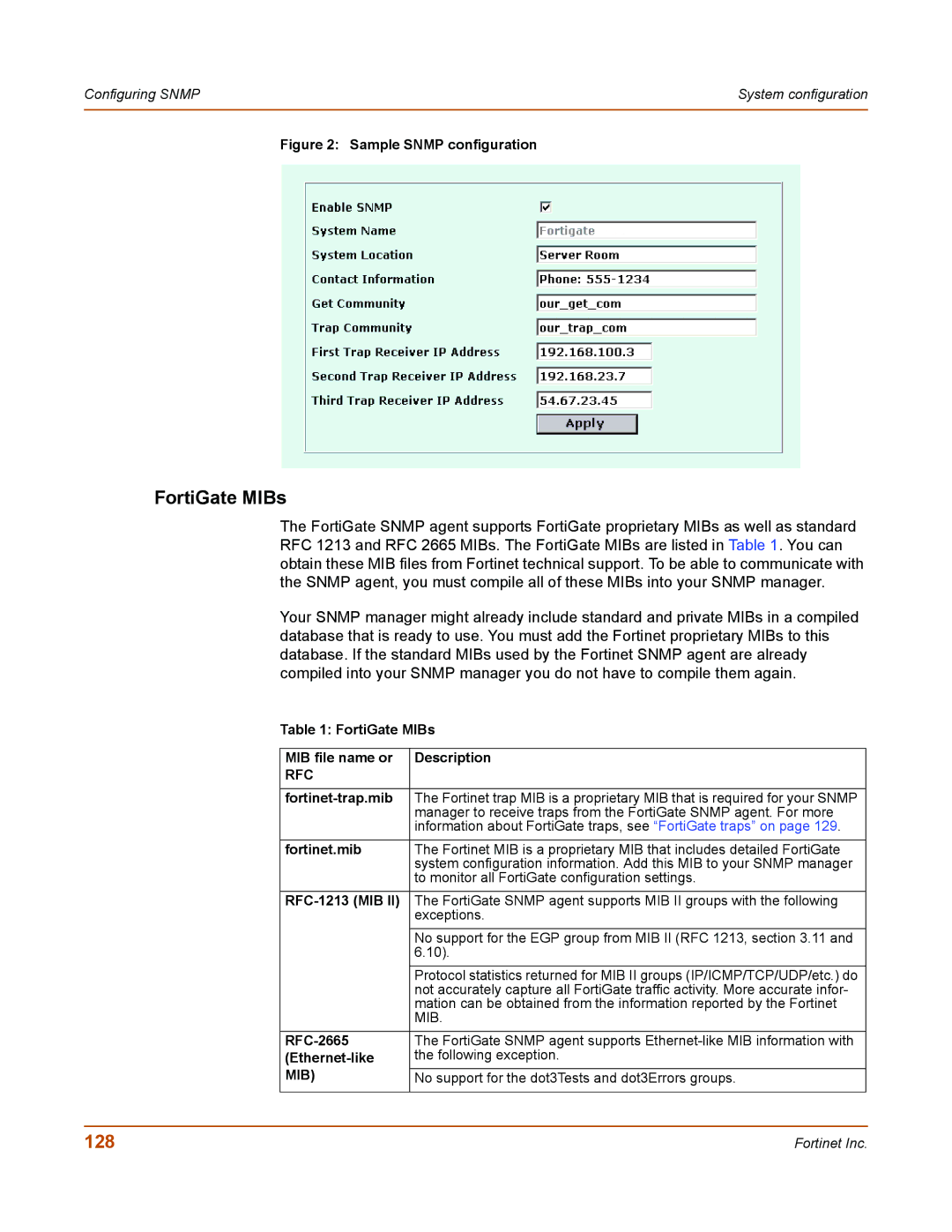
Configuring SNMP | System configuration |
|
|
Figure 2: Sample SNMP configuration
FortiGate MIBs
The FortiGate SNMP agent supports FortiGate proprietary MIBs as well as standard RFC 1213 and RFC 2665 MIBs. The FortiGate MIBs are listed in Table 1. You can obtain these MIB files from Fortinet technical support. To be able to communicate with the SNMP agent, you must compile all of these MIBs into your SNMP manager.
Your SNMP manager might already include standard and private MIBs in a compiled database that is ready to use. You must add the Fortinet proprietary MIBs to this database. If the standard MIBs used by the Fortinet SNMP agent are already compiled into your SNMP manager you do not have to compile them again.
Table 1: FortiGate MIBs
MIB file name or | Description |
RFC |
|
|
|
| The Fortinet trap MIB is a proprietary MIB that is required for your SNMP |
| manager to receive traps from the FortiGate SNMP agent. For more |
| information about FortiGate traps, see “FortiGate traps” on page 129. |
|
|
fortinet.mib | The Fortinet MIB is a proprietary MIB that includes detailed FortiGate |
| system configuration information. Add this MIB to your SNMP manager |
| to monitor all FortiGate configuration settings. |
|
|
| The FortiGate SNMP agent supports MIB II groups with the following |
| exceptions. |
|
|
| No support for the EGP group from MIB II (RFC 1213, section 3.11 and |
| 6.10). |
|
|
| Protocol statistics returned for MIB II groups (IP/ICMP/TCP/UDP/etc.) do |
| not accurately capture all FortiGate traffic activity. More accurate infor- |
| mation can be obtained from the information reported by the Fortinet |
| MIB. |
|
|
The FortiGate SNMP agent supports | |
the following exception. | |
MIB) |
|
No support for the dot3Tests and dot3Errors groups. | |
|
|
128 | Fortinet Inc. |
